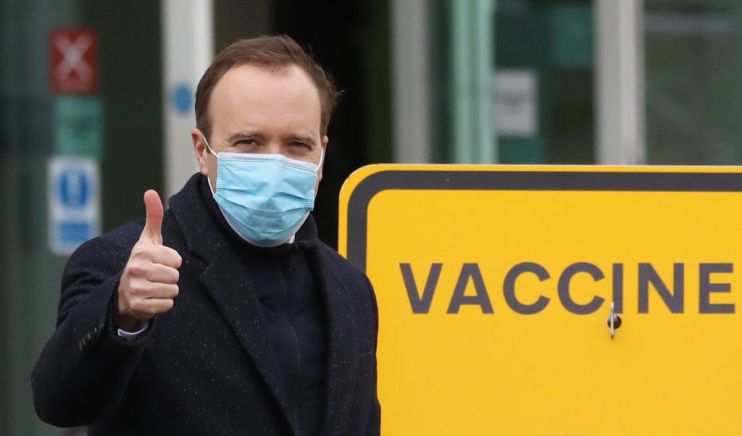The vaccine rollout has been a success but it has still fallen prey to Whitehall inefficiency

Dominic Cummings has yet again attempted a forced exorcism of Matt Hancock from the government. To the ex-special adviser, the Health Secretary represents everything wrong with Whitehall and its bureaucracy: a failure to innovate, to find creative solutions or to ensure pinch points of stasis in existing symptoms do not become endemic.
In this, at least, he is right. The traditional Whitehall model does not work well in the modern world.
While private and third sector organisations embrace more agile ways of working, using a combination of technology and flexible organisational structures to help them pivot rapidly in response to changing conditions, the public sector largely resists these changes. It continues to either suppress innovation or else to mangle it through well-meaning but destructive management practices.
Many central government-led technical projects end up looking like a top-of-the-range sports car that the recent buyer did not know how to handle: expensive wreckages at the side of the road. The Track and Trace app or the failed PPE procurement strategy are prime examples.
Of course, there are exceptions. We have seen a truly industrious effort to roll out the vaccine to people across the country, with almost half of the population given two jabs. On the more boring side of the spectrum, the systems now in place to renew a passport, driving licence or even the self-assessment tax return, are now all simplified and digital.
While the vaccine programme has been a triumphant success, it has nonetheless been just as vulnerable to the stultifying rabbit holes of Whitehall. Continuity of supply has always been integral. Supply has always been the inhibiting factor, or so we were told. At least at the beginning, this may have been true. Over the last month, however, there has been an abundance of doses.
Young people, patiently waiting for their time to come, have been passing around rumours of clinics giving vaccines out at the end of the day to avoid wasting any doses. This came to a head over the Bank Holiday weekend, when the mass-vaccination centre at Twickenham stadium was practically stormed after they announced they would give a jab to anyone over the age of 18 to ensure all doses went to good use.
In the travel industry – in normal times – aggregator platforms make it possible for hotels and airlines to fill up their empty capacity by offering last-minute deals. A similar platform should have been available for the vaccines.
Bureaucrats, so stunned with their own success, did not look to the parts of the programme which could have still been improved.
Instead of pre-occupying themselves with fears young people were reluctant to have a vaccine, the minds of the Department of Health should have found a way of alerting people nearby, perhaps even through the NHS app, when there were vaccines available.
Britain may have had one of the fastest vaccine rollouts, but it is not immune to criticism. It will justifiably be hailed as a success for Mr Hancock, but it is a continuation of the lesson all of Whitehall needs to learn: innovation is a constant race and does not stop just because you’re in first place.